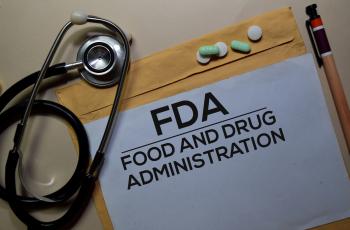FDA Denies Approval of Provention Bio’s T1D Preventive Teplizumab
The FDA has denied approval of teplizumab, the first disease-modifying drug that could prevent the onset of type 1 diabetes. Read below for more information on the therapy and FDA approval process.
Against the recommendation of its advisory committee, the FDA on July 2 denied approval of Provention Bio’s teplizumab, a drug meant to delay the onset of type 1 diabetes in at-risk people. In its complete response letter, the FDA stated that the drug did not meet the criteria for pharmacokinetic comparability — a test to ensure drugs move through the body in the same way for everyone over time.
On May 27, an FDA Advisory Committee voted 10-7 to recommend teplizumab for approval, reasoning that the potential benefits of the drug outweighed its risks. The committee noted that the study’s sample size of 76 was limited and that the product needed to be reviewed for long-term risks, while still recommending the drug for approval.
Teplizumab is the first disease-modifying drug with potential for delaying type 1 diabetes in at-risk individuals. The drug preserves the body’s ability to produce insulin, and clinical trials have shown a delay in the onset of type 1 diabetes by approximately two years in participants between the ages of 8 and 49 when they received daily infusions of teplizumab over 14 days.
Seeking FDA approval, proponents had hoped it would have helped individuals avoid life-threatening health complications by delaying the onset of the disease. In a public comment to the FDA, Clara Salaki, who had a child with type 1 diabetes enrolled in the teplizumab trial, and has two other children at-risk for the disease, said, “My two potentially at-risk daughters could benefit from teplizumab. I have begun to see what it did for my son and that was truly life changing.” She added, “Please light the way so my girls could have the treatment option my son and so many didn’t get the chance to receive.”
Although the FDA’s decision is disappointing for those eager for approval of teplizumab, the agency’s letter did not cite any clinical shortcomings related to its effectiveness. Provention Bio has since expressed plans to address the FDA’s concerns by collecting additional data on the body’s response to the therapy during their ongoing PROTECT study. The FDA also expressed concerns about product quality, but Provention Bio indicated that the issues have already been addressed, and the company said it will submit a safety update as part of its application resubmission for approval.
While the possibility of new therapies to delay the onset of diabetes is promising, we recognize the importance of rigorous evaluations to make sure these therapies are safe. In the UK, teplizumab was granted the Innovation Passport on July 12 to facilitate expedited approval. We are hopeful that the ongoing collaboration between Provention Bio and the FDA will address the FDA’s concerns and ultimately bring the first approved T1D preventive immunotherapy to the public. In the meantime, we look forward to seeing more innovation in the sphere of preventive and curative diabetes therapies.


